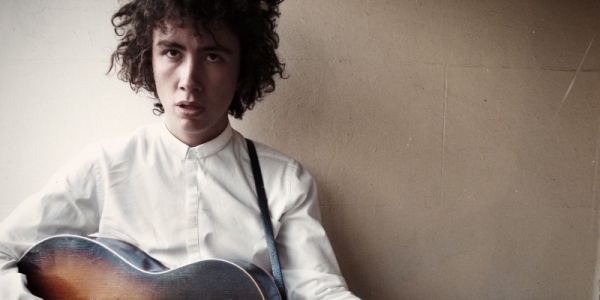Gorman had first encountered music when he was about 12 when his mother suggested singing lessons might assist Gorman with countering the stutter with which he was afflicted. “My mum put me in singing lessons because I stutter,” Gorman says. “It didn’t help, but I found that I really liked singing.” Gorman’s mother subsequently bought him a microphone to further his interest in singing. “I thought I’d look dumb singing without a guitar, so I bought a guitar and learnt how to play,” Gorman says.
At the ripe old age of 15, Gorman was playing in a band in local venues, including Geelong’s National Hotel. Gorman’s first band survived for two and a half years before succumbing to the age-old “artistic differences”. While the break-up of the band left Gorman disappointed, it also provided the catalyst for Gorman’s solo career. “It was actually quite easy to go from being in a band to playing solo, because my old band broke up due to artistic differences, but when I’m playing solo, I can do what I want,” Gorman laughs.
It was around this time that Gorman saw Justin Townes Earle perform during one of the former’s recent Australian tours. “I fell in love with the music of Justin Townes Earle,” Gorman says. “I was feeling a bit shit at the time because of the band breaking up, but when I saw him play, it was amazing. He managed to play with just a fiddle player, and he just blew the place apart. I wanted to replicate that.”
Gorman considered what to title his solo outfit, wavering between using his own name, and a pseudonymous moniker. In the end, Gorman settled on a variation of his birth name, adopting the ‘A’ (for Gorman’s middle name, Alexander). “When I started up I wasn’t sure what to call myself, whether I’d use my name or a moniker,” Gorman admits. “Eventually I settled on my name, but I needed something different to my Facebook page,” Gorman chuckles.
Like Justin Townes Earle, Gorman embraced the story-telling approach typically associated with the country-blues-folk genre. The notion of using a story as the basis for a song was an approach with which Gorman was already familiar. “Yeah, for sure,” Gorman says, when I ask him whether he’s a storyteller. “When I was about 12 I was talking to my singing teacher, and I asked her how to write a song. And she said all you really needed to do is to tell stories, and that really stuck with me, and that’s what I still do. If a song is sticking, then I have to look at what story I’m trying to tell,” Gorman says.
At the age of 18 Gorman moved to Melbourne, quickly forming part of an expatriate surf coast community that includes King Gizzard and the Lizard Wizard, The Murlocs and Sleep Decade. “We all grew up together and we used to play gigs at The Nash,” Gorman says. “There’s a real sense of natural competitiveness, but in a healthy way. We all strive to play good music and good gigs – it’s really good to be part of something.”
Most of Gorman’s stories tend toward real life events, though he does endeavour to protect the innocent. “Most of my songs are autobiographical because, to a degree, you can only write about what you know,” Gorman says. “So I often write stories about my family.” The familial subject isn’t, however, always obvious. “Sometimes they might know what it’s about, but it’ll come down to how cryptic the song is. Some of them are really bare, but I never say anything bad about them,” Gorman laughs.
While in theory Gorman’s surf coast background might provide useful narrative fodder, Gorman isn’t inclined to draw upon his past for his contemporary tunes. “I look back on my upbringing fondly, but I don’t feel the need to write about it,” Gorman says. “I was quite detached from the surfing community, so there’s not necessarily anything to write about.” Sometimes, but not always, a song will offer the opportunity to make sense of a real-life event. “Songs have purpose, and you write a song about death or a hardcore issue like that, they can definitely help with closure on those topics,” Gorman says. “I suppose to what degree it can help depends on the song and the issue.”
Having released his debut EP earlier this year, Gorman says he’s halfway through recording his first full-length record. “The Northcote Social Club show this week is the launch of the first single from the album, which should be out early next year,” Gorman says. While Gorman says he’s enthusiastic about pursuing his musical career, he’s pragmatic about the financial reality of life as a professional musician. “I suppose I do have career aspirations, but at the same time a career in music is difficult at the best of times,” Gorman says. “I’m definitely motivated, but I’m also realistic about this kind of thing. These days music is more of a glorified hobby than a career!”
BY PATRICK EMERY

